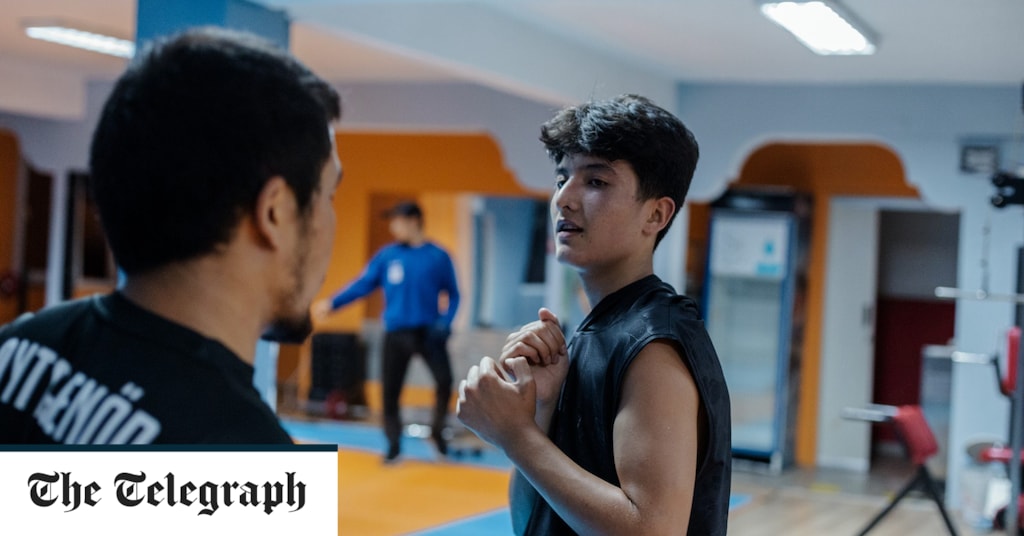Some Uyghurs fortunate enough to escape are faced with the anguish of having left their children behind. Abdusattar Haji, imprisoned in Xinjiang multiple times for religious activities, escaped without his seven children and 20 grandchildren.
“We didn’t have any freedom in China; I met a lot of cruelty at the hands of the Chinese,” says the 74-year-old dentist, who sees a handful of patients in his modest home.
Some days he hangs a massive protest placard over his neck – “China!! Release my family!” – and joins other Uyghurs at the Chinese consulate in Turkey to protest the crackdown.
While their relatives are imprisoned for showing the slightest sign of religiosity within China, the young Uyghurs in Istanbul are proudly growing into their faith.
Ms Mahmud wears an abaya, a full-length black robe. Imran memorised the Quran in just three months and now leads prayers before boxing classes.
Still, many of the Uyghurs in this part of the world live on the fringes. A large swath is stateless, having fled without papers through human trafficking routes to southeast Asia, before being allowed entry to Turkey.
Even those who obtained Turkish citizenship or residence permits fear being sent back to China. An extradition deal, first agreed in 2017, has been ratified by China and is awaiting the same from Ankara’s parliament.
Imran’s training ends as the clock in the gym, emblazoned with a blue crescent moon and star, strikes 9.30pm.
Tearing off his gloves, he collapses on the mat in black gym shorts emblazoned with “fearless” down the side – a word he embodies but has yet to learn the meaning of in English.
While he’s tried to adjust to Istanbul and has made new friends, nothing replaces the home he’ll probably likely never visit again.
“I remember everything about my neighbourhood, all the places there, and how it felt,” he says.
“I hate the Chinese government. They don’t deserve to represent the Chinese…
Read the full article here





